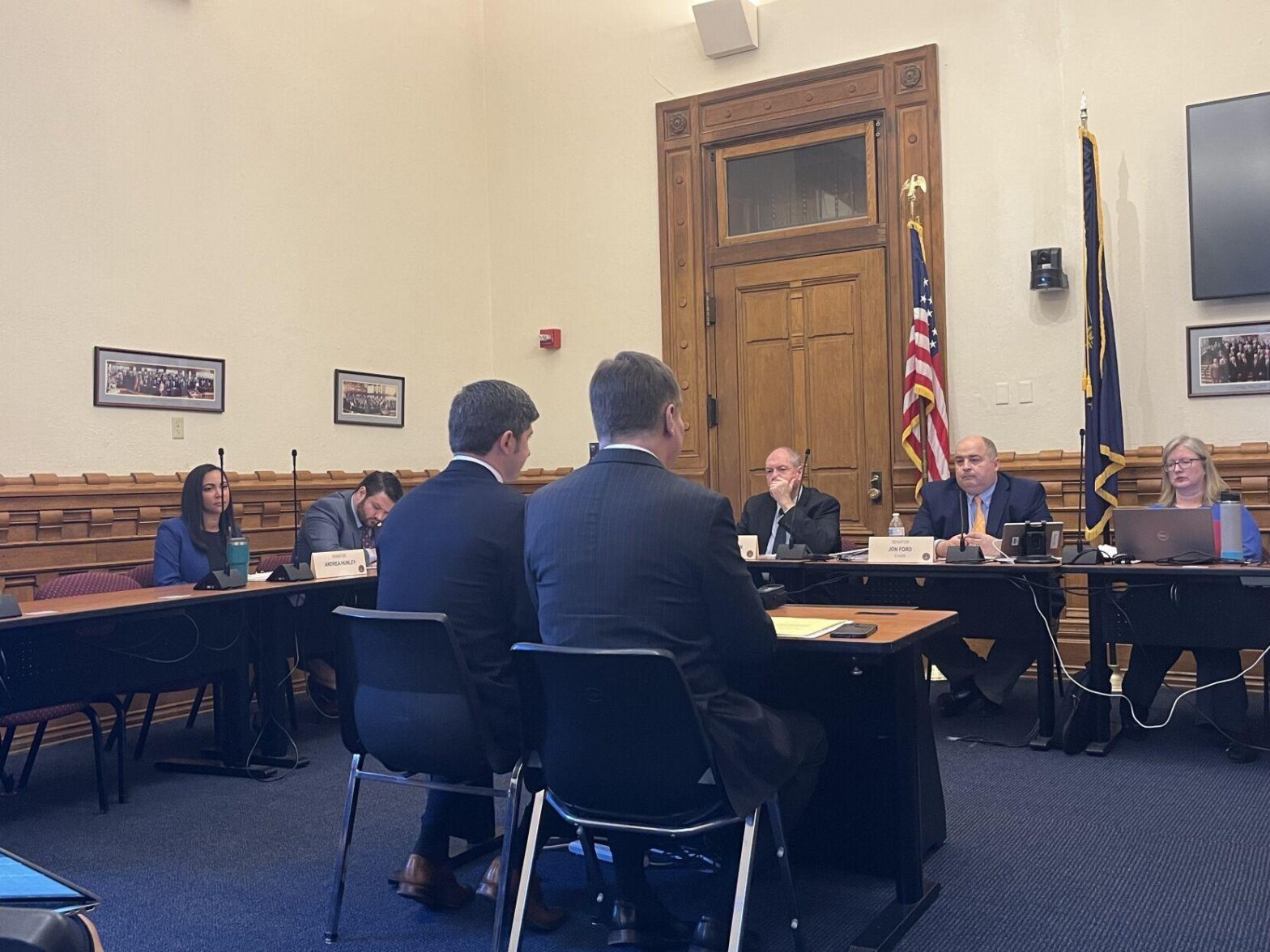
Above: Rep. Timothy Wesco, R-Osceola, testifies on House Bill 1334 before the Senate Elections Committee.
A controversial absentee voter bill heard testimony without a vote in the Senate Elections Committee on Tuesday.
House Bill 1334 seeks to tighten the restraints on absentee voter ballots. Currently, voters have the option to put the last four digits of their Social Security number on absentee ballot applications. This bill would require that they submit the last four digits of their SSN, their driver’s license number, their non-driver ID or their voter ID number.
Alternatively, the applicant can instead send in a photocopy of any identification material covered under Indiana law, like a passport or a driver’s license.
Rep. Timothy Wesco, R-Osceola, the author of the bill, said its purpose is to protect Indiana from voter fraud and that it brings absentee voting up to the same level of security as in-person voting. Wesco did not reference specific examples or numbers of voter fraud cases.
Wesco said the bill is ”simply trying to offer as many options to Hoosiers as possible.”
Julia Vaughn, policy director of Common Cause Indiana, said most absentee voters are elderly or disabled Hoosiers, groups of people that would find jumping through identification hurdles particularly difficult. She also said that the bill aims to fix a problem that isn’t prevalent in the state.
“It’s a bill that overemphasizes concerns about security by mail at the expense of easy access for voters and smooth administration by the county election officials with little to no proof that such restrictions are necessary from a security perspective,” Vaughn said.
Sen. Greg Walker, R-Columbus, said the bill is a great opportunity to update absentee voting as a whole, a process that hasn’t seen many updates in Indiana. Walker mentioned the idea of eliminating the use of Social Security numbers in general for the sake of security—or at least somehow destroying applications with Social Security numbers after they are used.
Angela Nussmeyer, the Democratic co-director of the Indiana Elections Division, brought up her concern with another section of the bill, which bans any state agency or political subdivision from sending out ballots to Hoosiers unless they are requested.
She said this could make it more difficult to get ballots to people who may have trouble requesting them, such as those living in assisted care facilities.
Vaughn said that Common Cause’s P.O. box number is extremely similar to the office next to them and that over the years, mail has been repeatedly mixed up because of a small, four-number difference. She made the connection that this sort of event could just as easily happen with ballots.
“If the Indiana General Assembly passes this bill, it’s not hard to see these types of errors creating headaches for county election administrators and increasing the disenfranchisement of some of Indiana’s most vulnerable voters simply because election deadlines prevented them from correcting their mistakes,” Vaughn said.
After hearing testimony, Wesco thanked those who came forward with their concerns and said he wanted to make sure he got the bill perfect before the committee votes on it and possibly make further changes to HB 1334.
Many other states have introduced similar bills on absentee voting, such as Arizona and Texas. The Brennan Center, a nonpartisan law and policy institute, said these bills have been filed in over 30 states. The article stated that many of these bills push to make mail-in voting more restrictive.
The Senate Committee does not have any further meetings scheduled but is currently assigned to five other bills.
Ashlyn Myers is a reporter for TheStatehouseFile.com, a news website powered by Franklin College journalism students.